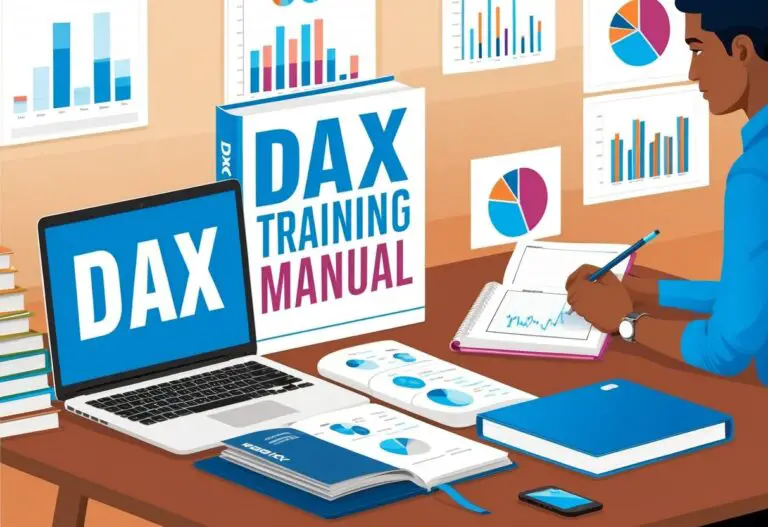Power Automate vs Power Apps
You may be familiar with PowerApps as well as Power Automate if you’re involved with the Microsoft Office 365 ecosystem. Much of the functionality of two separate platforms, Microsoft PowerApps and Power Automate, is the same. Be mindful of the key distinctions between the two, though, so you can make an informed decision for your company. Then, how are these two products distinct from one another? And which one is best for your company’s needs?
This PowerApps vs. Power Automate comparison guideline and Microsoft Power Bi Training will help you choose the best product for your business by comparing and contrasting the two.
Table of contents
- What is the Microsoft Power Automate?
- What are the Microsoft PowerApps?
- Advantage of PowerApps and Power Automate for Your Business
- The Distinction Between PowerApps and Power Automate
- Conclusion
What is the Microsoft Power Automate?
Businesses can automate monotonous operations with the help of Power Automate. Integrating programs like SharePoint as well as email into a unified workflow is a breeze with Power Automate. One further usage for Power Automate is to automate processes inside certain applications; for example, making a report every day in Excel. If your company needs to automate regular duties, Power Automate is the way to go.
Given this, which platform would you recommend? Your company’s objectives will determine the response. With Microsoft Power Bi Training, you can get your hands on PowerApps if you’re in need of bespoke apps for your staff. Power Automate is the ideal tool to use if you have repetitive chores that you must automate.
What are the Microsoft PowerApps?
With PowerApps, a low-code platform, companies may create distinctive applications for their staff. Create your own PowerApps from the ground up or use one of the many pre-made templates. Applications built with PowerApps are compatible with desktop PCs, mobile devices, as well as web browsers. You may connect PowerApps apps to other Microsoft products like SharePoint and Dynamics 365. Businesses who require staff apps but lack the resources to create them in-house will find PowerApps to be the most suitable solution.
Advantage of PowerApps and Power Automate for Your Business
Now that you understand the main differences between PowerApps and Power Automate, we can examine the advantages of every platform.
The advantages that PowerApps provides are as follows:
- Making changes to PowerApps is a breeze.
- When compared to Power Automate workflows, PowerApps applications offer more flexibility.
- Applications built with PowerApps are compatible with desktop PCs, mobile devices, as well as web browsers.
Here are some advantages that Power Automate provides:
- You don’t need any other Microsoft products to utilize Power Automate processes.
- There are a lot of other advantages to using Azure, which includes Power Automate.
The Distinction Between PowerApps and Power Automate
You need to know the differences between PowerApps as well as Power Automate to make an informed decision for your company.
Here are a few ways in which PowerApps and Power Automate differ from one another:
- Versus Power Automate for Editing as well as Improvements
The editing and improvement process is where PowerApps and Power Automate diverge significantly. You can make changes to your PowerApps without ever leaving the PowerApps interface. This implies that the program will show your modifications instantly whenever you make them. However, Power Automate employs a distinct tool referred to as Flow for the purpose of enhancing and modifying workflows. You may easily incorporate new steps into your workflow using Flow, an image editor. This difference is significant since it allows for easier and faster editing of PowerApps programs compared to Power Automate processes. You should choose PowerApps over other platforms if you anticipate frequent updates to your program.
- Flexibility and Customizability: PowerApps vs. Power Deploy
The flexibility and extensibility of PowerApps and Power Automate is another important difference among the two. When compared to Power Automate workflows, PowerApps apps offer more flexibility. This is due to the fact that PowerApps applications are compatible with all major platforms and web browsers. The processes in Power Automate, however, are desktop-only. You should choose PowerApps over other platforms if your program needs to be accessible on mobile devices or web browsers.
One use case is the development of specialized entering information forms using PowerApps apps. However, custom form creation is not possible with Power Automate processes. When compared to other Microsoft applications, PowerApps offers greater flexibility in terms of integration. The PowerApps application platform is compatible with Power BI, SharePoint, as well as Dynamics 365. Only SharePoint is compatible with Power Automate processes. In case you’re in search of an opportunity that can better accommodate your needs, go no farther than PowerApps.
- PowerApps vs. Power Automate: Collaborating and Working Solo:
The usage of PowerApps with Power Automate with is one area where they differ significantly. In most cases, PowerApps apps will work hand in hand with other products from Microsoft like SharePoint and Dynamics 365. Conversely, Power Automate processes do not rely on any other Microsoft products for their operation. You should choose Power Automate if you require a platform which is compatible with other Microsoft products but not dependent on them.
- PowerApps and Power Automate: memberships
The Office 365 suite includes PowerApps. The azure cloud platform includes Power Automate. Need a platform? Look no farther than PowerApps, which is an integral component of the Office 365 package. Power Automate is an excellent platform to consider if you require an Azure-based solution.
Conclusion
Some of the most important differences among PowerApps and Power Automate are these. With this Microsoft Power Bi Training, you may learn to choose between the two systems that best suit your company’s requirements. Talk to experts who knows their way around PowerApps and Power Automate before you make a final choice.


